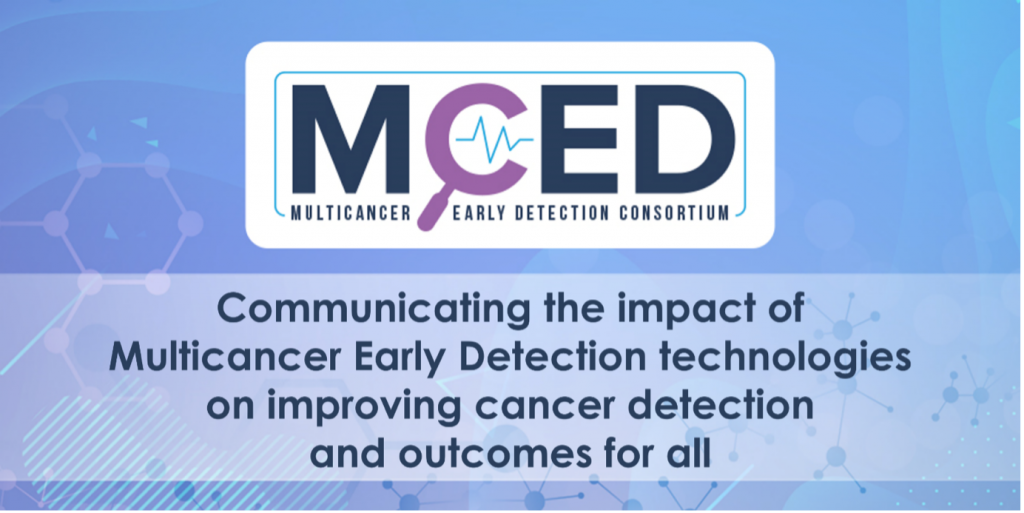
Cancer is the 2nd leading cause of death behind heart disease in the US and UK. Early detection of these cancers could be a valuable tool in the fight again cancer. Multicancer Early Detection (MCED) is a set of emerging technologies that could allow clinicians to screen and detect multiple cancers at early stages. These technologies are promising, but there is still limited data and a host of unanswered questions with using this type of test.
The MCED Consortium has brought together stakeholders from across the healthcare continuum to evaluate MCED technologies on their benefits and risks, develop guidance for their equitable and accessible introduction into clinical care, and accelerate education on how they may improve patient outcomes and survival. Their efforts will centre around several key objectives:
- To evaluate and assess the benefits and risks, potential outcomes, costs, and value associated with introducing novel MCED technologies into society and clinical care.
- To develop guidance for the potential introduction of these technologies into clinical care, including understanding public perceptions of MCED technologies and these technologies’ potential to improve or exacerbate health disparities.
- To accelerate additional lessons and evaluations on how MCED technologies could potentially improve outcomes for all people.
- To ensure a system or action plan is in place for follow-up testing and support.
The MCED Consortium are thrilled to announce the release of their first major output: an introductory position paper and associated press release. The introductory position paper outlines the background, scope, purpose, and intentions of the MCED Consortium and it’s workgroups.
The MCED Consortium comprises four initial workgroups: clinical utility, care delivery, health equity, and communications. Each workgroup executes independent projects to help achieve the Consortium’s work plan. Still, they collaborate on shared topics while soliciting appropriate feedback and suggestions from the executive committee and public representatives.
Prof Kate Brain (PRIME WP7 Screening, prevention & early diagnosis co-lead) has taken up a prestigious position as invited UK Deputy Chair for the Health Equity workgroup, and Dr Harriet Quinn-Scoggins (PRIME Research Associate) as a member of Health Equity workgroup. Both are very proud to be a part of the MCED Consortium.
The Health Equity Workgroup evaluates and develops guidance on reducing healthcare disparities using MCED technology. This workgroup includes representatives from organizations that assist minority and underserved populations in their local communities. To learn more about the MCED Consortium and work packages, please visit their website.